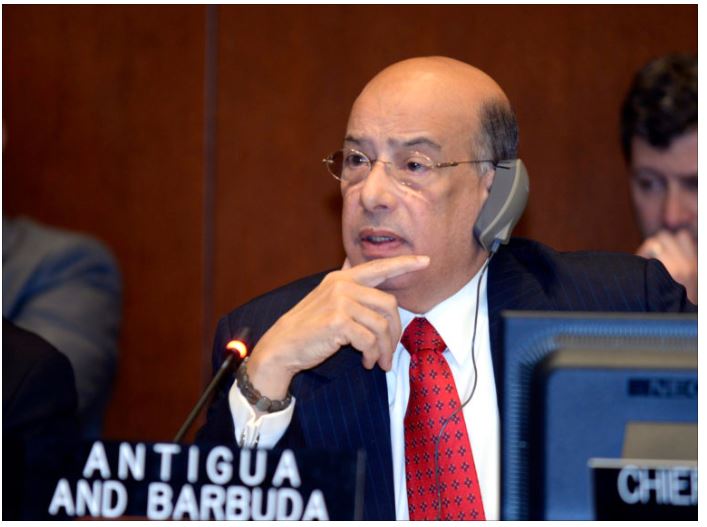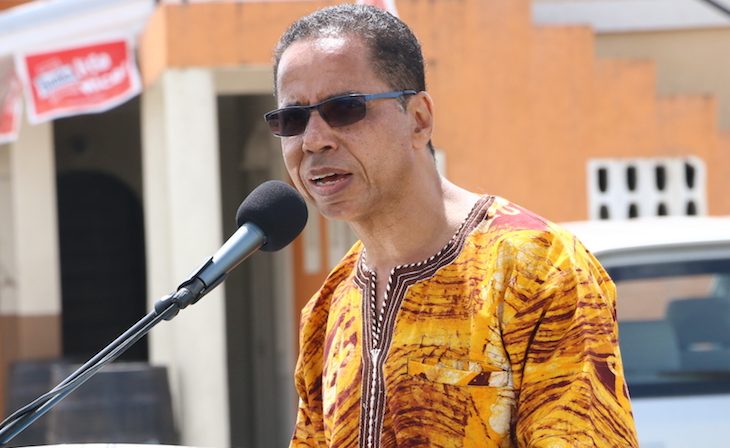This news article is a production distributed through Caribbean News Service. It is made freely available to your media and we encourage publishing and redistribution, giving credit to Caribbean News Service (CNS).
Barbados TODAY Editorial
BRIDGETOWN, Barbados, Jul 23 2016 – Taking issue with LIAT’s business model and consistent loss-making track record, Mr. Allen Chastanet, the newly elected Prime Minister of St Lucia, has always maintained a seemingly unrelenting opposition to supporting the Antigua-based regional airline.
As Minister of Tourism and Civil Aviation between 2006 and 2011, he firmly stuck to the position that the Castries government, which is an original LIAT shareholder, would not be providing any financial support to the island-hopping carrier which has struggled over many years to stay in the air.
In one of his first policy pronouncements since his United Workers Party (UWP) took office following the June 6 general election, Chastanet again made it clear that LIAT would not be receiving one red cent of support from the Castries government, despite ongoing financial challenges.
At least Mr. Chastanet, who is pushing for fundamental change within the airline, has let it be known publicly where he stands. However, there are other governments which are of the same view though they are not as vocal in their criticism of LIAT even though their countries benefit from the airline’s service like St Lucia, which currently gets ten daily scheduled services.
While every shareholder government understandably would like to see LIAT achieve and sustain profitability in order to become more self-financing, the reality facing the airline is that it is called upon to fly a number of routes which are uneconomical from a business perspective but deemed necessary from a social standpoint.
Having to do so puts LIAT at a disadvantage and undermines the objective of profitability. A case exists, therefore, for some form of subvention from the governments which are the main beneficiaries of LIAT’s social service. However, there seems to be a lack of appreciation on the part of some governments in this regard. The easy solution for LIAT is to simply stop flying those loss-making routes.
Despite its challenges and shortcomings which include perennial complaints from customers about poor service and high fares, LIAT gets Caribbean people around the region, even if it is late sometimes. It also runs a generally safe operation – there has only been one fatal crash in its history and that was in St Vincent 30 years ago. Since the modernization of its fleet over the few years ago, there has been some evidence of efforts to improve service and change the business culture. However, LIAT seems to have consistent challenges retaining the services of chief executive officers beyond a few years which lends to instability at the management level that can also serve to undermine the objective of improved performance.
In recent years, the taxpayers of Barbados, in particular, and also St Vincent and the Grenadines, Dominica and, to some extent, Antigua and Barbuda have collectively made a substantial contribution to keeping LIAT in the air for the benefit of the region. It is simply not fair that they should continue to foot the bill while other countries which are not making a contribution, enjoy a free ride in some cases at their expense.
Despite its flaws, LIAT provides a vital service. So vital it is that any prolonged disruption or total withdrawal would cause significant damage to some regional economies. Besides, if LIAT were to go, there is no guarantee anyone would immediately step in to fill the void considering the intra-regional travel market is considered not sufficiently attractive to generating the kind of hefty profits most private sector investors would expect.
In an interview with Barbados TODAY earlier this week, Barbadian banker Horace Cobham, who successfully raised US$23 million for LIAT through a bond issue some years ago, said a firm decision should be taken by shareholder governments to insist that all countries that benefit from the LIAT service, pump some cash into the airline.
“The easiest thing for LIAT . . . to do is to say I am cutting that route. If you cut the route to Dominica, for example, what will happen? So I think you have to look at the commercial aspect of LIAT and be real with what is required,” he said.
We support Mr. Cobham’s position. We also support the view that changes which are necessary to improve LIAT’s performance, should be taken from a strictly commercial perspective without any political meddling. One decision relates to the streamlining of the LIAT’s operations with the establishment of a hub in Barbados which the Government of Antigua and Barbuda is vigorously opposing.
Caribbean governments have a history of dragging their feet on issues. As time may be running out for LIAT, we hope shareholder governments, if they are serious about regional economic integration, will rise to the challenge and do what is right to save an airline which is a regional institution with a history of service spanning more than half a century.



